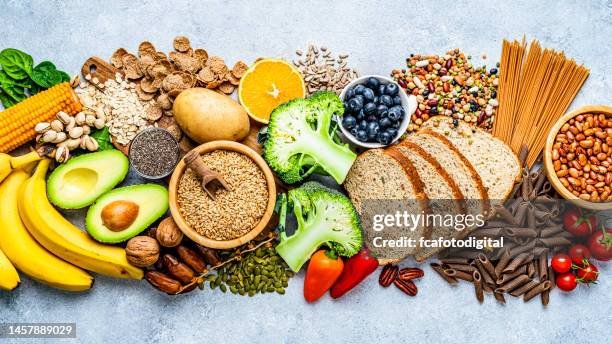Here’s an article on Nutrition for a Healthy Life that you can feature on your blog:
Nutrition for a Healthy Life: Key Principles for Vitality and Wellness
Good nutrition is the cornerstone of a healthy life. The foods we consume provide the energy and nutrients necessary for our bodies to function optimally, impacting everything from our physical performance to our mental clarity. In today’s world, with so many diets and trends, it can be difficult to know what truly constitutes a nutritious diet. Understanding the basic principles of nutrition can help you make informed choices that promote long-term health and vitality.
1. Eat a Variety of Nutrient-Dense Foods
The foundation of a healthy diet lies in variety. Eating a wide range of foods ensures you get all the necessary vitamins, minerals, and nutrients your body needs to thrive. Focus on nutrient-dense foods, which provide a high amount of nutrients for relatively few calories. This includes:
- Fruits and vegetables: Rich in vitamins, minerals, and antioxidants, they support immune function, reduce inflammation, and lower the risk of chronic diseases.
- Whole grains: Brown rice, oats, quinoa, and whole wheat bread provide fiber, vitamins, and slow-release energy.
- Lean proteins: Poultry, fish, beans, lentils, and tofu support muscle repair, hormone production, and immune health.
- Healthy fats: Avocados, nuts, seeds, and olive oil support brain function, heart health, and help your body absorb fat-soluble vitamins.
Tip: Aim to fill half your plate with fruits and vegetables at each meal to ensure you get a wide variety of nutrients.
2. Balance Macronutrients: Protein, Carbs, and Fats
A balanced diet includes the right proportions of macronutrients—proteins, carbohydrates, and fats. Each macronutrient plays a unique role in your health:
- Proteins are the building blocks of the body, essential for muscle growth, tissue repair, and immune function.
- Carbohydrates are the body’s primary energy source, especially for brain function and physical activity. Opt for complex carbs like whole grains and legumes, which provide sustained energy without spikes in blood sugar.
- Fats are important for brain health, hormone production, and energy. Focus on unsaturated fats from sources like nuts, seeds, and fish, and limit saturated and trans fats, which are linked to heart disease.
Tip: Include a balance of lean protein, complex carbohydrates, and healthy fats at each meal to maintain steady energy levels throughout the day.
3. Focus on Fiber for Digestive Health
Fiber is crucial for digestive health and can help prevent constipation, lower cholesterol levels, and reduce the risk of heart disease and type 2 diabetes. There are two types of fiber:
- Soluble fiber, found in oats, apples, and beans, helps lower blood sugar and cholesterol.
- Insoluble fiber, found in whole grains, nuts, and vegetables, helps with bowel regularity and supports a healthy digestive system.
Tip: Aim for at least 25-30 grams of fiber per day by including plenty of fruits, vegetables, legumes, and whole grains in your diet.
4. Stay Hydrated for Optimal Function
Water is essential for nearly every function in the body, from regulating temperature to supporting digestion and detoxification. Dehydration can lead to fatigue, headaches, and poor concentration. Aim to drink at least 8 glasses of water a day, more if you’re physically active or in a hot climate.
Tip: Keep a reusable water bottle with you throughout the day as a reminder to stay hydrated.
5. Limit Added Sugars and Processed Foods
Processed foods and added sugars contribute little to no nutritional value and can increase the risk of obesity, type 2 diabetes, and heart disease. Sugary drinks, packaged snacks, and processed meals are often high in unhealthy fats, sodium, and sugars, leading to weight gain and inflammation.
Tip: Read food labels to check for hidden sugars and unhealthy ingredients. Replace sugary drinks with water, and opt for whole, unprocessed foods whenever possible.
6. Incorporate Superfoods for Extra Nutritional Boost
Superfoods are nutrient-rich foods that provide significant health benefits. While there’s no single food that can make you healthy on its own, incorporating superfoods into your diet can give you an extra boost of antioxidants, vitamins, and minerals. Some examples include:
- Berries: Packed with antioxidants, they support brain health and reduce inflammation.
- Leafy greens: Spinach, kale, and swiss chard are loaded with vitamins A, C, and K, as well as iron and calcium.
- Nuts and seeds: A great source of healthy fats, protein, and fiber that supports heart health.
- Fatty fish: Salmon, mackerel, and sardines are rich in omega-3 fatty acids, which are essential for brain health and reducing inflammation.
Tip: Incorporate a variety of superfoods into your weekly meals to increase your intake of antioxidants and other vital nutrients.
7. Practice Portion Control and Mindful Eating
Even with a nutritious diet, portion control is key to maintaining a healthy weight and avoiding overeating. Mindful eating is about paying attention to your hunger and fullness cues, eating slowly, and enjoying each bite. This can help prevent mindless snacking and emotional eating, which can lead to weight gain.
Tip: Use smaller plates to help control portion sizes and practice mindful eating by eliminating distractions, such as phones or TV, during meals.
Conclusion
Nutrition is a fundamental pillar of a healthy life. By focusing on a balanced diet rich in whole, nutrient-dense foods, staying hydrated, limiting processed foods, and practicing mindful eating, you can lay the foundation for long-term health and well-being. Remember, it’s not about perfection, but making small, consistent choices that support your overall vitality.
This article provides a comprehensive guide on how nutrition can support a healthy lifestyle, perfect for readers looking to enhance their well-being through diet.
